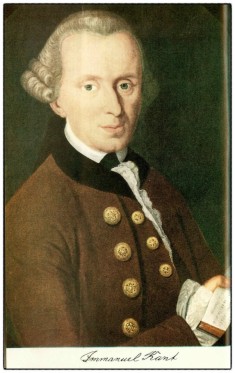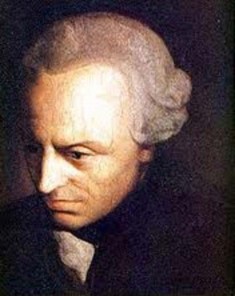Immanuel Kant was a famous German philosopher. Kant is also considered to be a central figure of the modern philosophy. He urged that human concepts and other categories structure our view of the world and its laws which, according to him, is reason, or the main source of morality. Today, Kant’s ideas continue to hold an influential place in contemporary thought. This is especially true in major fields such as ethics, metaphysics, epistemology, aesthetics and political philosophy.
Immanuel major work called Critique of the Pure Reason was published in 1781. His main aim was to bring reason together with experience and also move beyond what was thought as failures of traditional metaphysics and philosophy. Kant hoped to end the age of great speculation where some objects outside the experience were seen to support futile theories.
Early Life
Immanuel was born on April 22, 1724, in Konigsberg, Prussia. He was the fourth child of nine children. After learning Hebrew, he changed his first name from Emanuel to Immanuel. Throughout his life, Kant never went more than 10 miles from Konigsberg. His dad was a great German harness maker all the way from Memel.
Immanuel Kant grew up in Pietistic household which stressed extreme religious devotion, humility, and a literal interpretation of the Bible. As a young man, he received a stern education that basically preferred Latin and other religious instruction over science and mathematics. Despite all this religious education, Kant was still skeptical of religion later in life and was even an agnostic.
The Young Scholar
As a child, Immanuel showed great aptitude to learn. His school was the Collegium Fredericianum before enrolling at the University of Konigsberg in 1740 at only 16 years of age. While enrolled at the university, he studied philosophy under Martin Knutzen, who was a rationalist.
Martin was familiar with the great developments in the British philosophy and also science. He also introduced Immanuel to the mathematical physics of the famous Isaac Newton. Martin dissuaded the young Immanuel from idealism that was then negatively regarded by many philosophers of 18th century.
Kant’s Work and Publications
 In his Critique of Pure Reason, Kant developed a theory called transcendental idealism. This basically means that reality is strictly mental. He even produced some arguments that were against the traditional idealism in the second part of his book. In 1746, his father passed away and this interrupted his studies for a while. He later became private tutor in Konigsberg where he still continued his scholarly studies.
In his Critique of Pure Reason, Kant developed a theory called transcendental idealism. This basically means that reality is strictly mental. He even produced some arguments that were against the traditional idealism in the second part of his book. In 1746, his father passed away and this interrupted his studies for a while. He later became private tutor in Konigsberg where he still continued his scholarly studies.
Immanuel Kant is popular for the great work in philosophy of ethics plus metaphysics. He also made great contributions to many other disciplines. For example, he made a very important astronomical discovery about nature of the Earth’s rotation. This discovery won him a Berlin Academy prize in 1754.
In 1755, he published a book called General History of Nature and Theory of the Heavens. In this book, he explained the Nebular hypothesis. In this hypothesis, he attempted to explain that the entire solar system was formed from a very large cloud of a gas, called a nebula. He also described the order of solar system and also deduced that Milky Way was very huge disk of stars. When this was theorized, it formed a much bigger spinning cloud of a gas. All these theories opened new horizons for the field of astronomy.
In the early 1760s, Immanuel produced a number of very important books dealing with philosophy. One of his works – The False Subtlety of the Four Syllogistic Figures – was published in 1762 followed by two other works in the following year. In 1770, he was made a Professor of Logic and Metaphysics at the University of Konigsberg. He wrote his own inaugural dissertation as a defense of this appointment.
Kant’s Philosophy
Much of Kant’s work reconciled most of the differences that existed between empiricist and rationalist traditions of 18th century. Basically, he had a great impact on the Roman and German idealist philosophers of the 19th century. His works was also starting point for most of 20th century philosophers.
On religion, Kant believed that for the sake of morality, humans are justified to believe in God. This was even though they could not know God’s presence empirically. Kant’s influence has also extended to social, behavioral, and physical sciences.
He also lectured anthropology for more than 25 years. In 1797, his lectures on anthropology were later published for the very first time in German.
